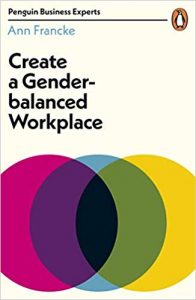
Ann Francke is the CEO of Chartered Management Institute (CMI), Winner of the Louis Armstrong Award for outstanding leadership of a UK professional body 2016 and Author of: Financial Times Guide to Management: How to Make a Difference and Get Results.
Did you ever sit down and plan your career?
I got here via many twists and turns, but I expected them rather than fearing them.
I was awarded a grant to study in Europe and I wanted to remain there, rather than go back to the US. I asked someone I knew and I was lucky to find a position at P&G for a while and see their working experience and how they did things. From there my career started, but it was not planned to work at P&G, nor was it planned to one day become the CEO of CMI.
I had to learn a lot along the way.
Have you faced any challenges along the way and if so, how did you deal with them?
I had some great mentors and sponsors when I started. I was very lucky that a senior male at the company sponsored me and that was very valuable to me. Line managers have also helped and supported me. I later became a mentor too. There’s a balance between putting yourself forward for things and other people putting you forward for opportunities – if someone does put you forward for something, then you have to be sure that you can deliver.
When you reach executive level some people realise that their human behavior takes a back seat. This can put women off, as it is not how they’d like to lead. A lack of women in these roles, can be a turn off too. You can experience prejudice in such roles, because you might have an evidence based and forthright argument but you’re seen as difficult because you’re a woman. The more senior I got, the harder it was to speak up and challenge a team of male authority.
It has got better over time though and there’s more of a culture now to talk about issues such as work/life/family balance. We have really moved on, but there are still lots of challenges to solve.
What advice would you give someone who wishes to move in to a leadership position for the first time?
Lead the way that you would like to be led. You know what good looks like, because you’ve experienced it. You know what bad looks like, because you’ve also experienced it. So, don’t do it.
Don’t only choose people who are just like you and ensure that you’re not over correcting their weaknesses. It doesn’t mean that you shouldn’t give feedback, but it has to be constructive.
Inspire the trust of those you lead. To do this you have to support them but challenge them too.
When faced with two equally-qualified candidates, how would you decide who should have the role?
I think to myself, what would increase the breadth and diversity of the team? Whether that be gender, experience, ethnicity, nationality. Who is going to stretch the team the most?
How do you manage your own boss?
You have to manage your own boss – those who don’t recognise that will not be successful. You don’t have to be a ‘yes’ person, you have to challenge them too. And sometimes it can be unwelcomed, but you have to stay true to your values. When you do challenge your boss, make sure it is evidence based and if it is critical then you need to offer up a solution.
On a typical workday, how do you start your day and how does it end?
I’m not a big routine person. I’m flexible, but there are a few things I do each day. I check emails and write them in the morning and I read the papers. I tend to finish my day by going to the gym or just having a glass of wine instead.
What advice can you give to our members about raising their profiles within their own organisations
I was lucky as I had a sponsor – not a mentor. That is something completely different. I also made my own luck too. I went into his office, was introduced, shook his hand, sat down and he offered me a cup of tea.
A sponsor is someone higher up the line who can materially affect your career – they can promote you or suggest you for a promotion.
Do you think networking is important and if so, what 3 tips would you give to a newbee networker
If you go to events where you don’t know anyone, get a guest list and find three people that you want to meet. Try and find common agendas such as ‘I’m also in the 30% Club.’
It is good for people to put themselves in slightly awkward situations. It builds resilience and confidence to go into an unknown situation.
What does the future hold for you?
You should always be open. I hope I haven’t run out of runway here, yet, and that I have much more to do.
You have to make your own opportunities too. They’re not going to come down from the sky and open a door for you.
 Pre-order Ann’s new book, ‘Create a Gender-balanced Workplace’ here.
Pre-order Ann’s new book, ‘Create a Gender-balanced Workplace’ here.
In the Penguin Experts: Create a Gender-Balanced Workplace, Ann Francke, the CEO of the Chartered Management Institute (CMI), introduces her solution to combating the problems at the heart of the continued imbalance and offers clear, actionable strategies for making a positive change in your organisation.








